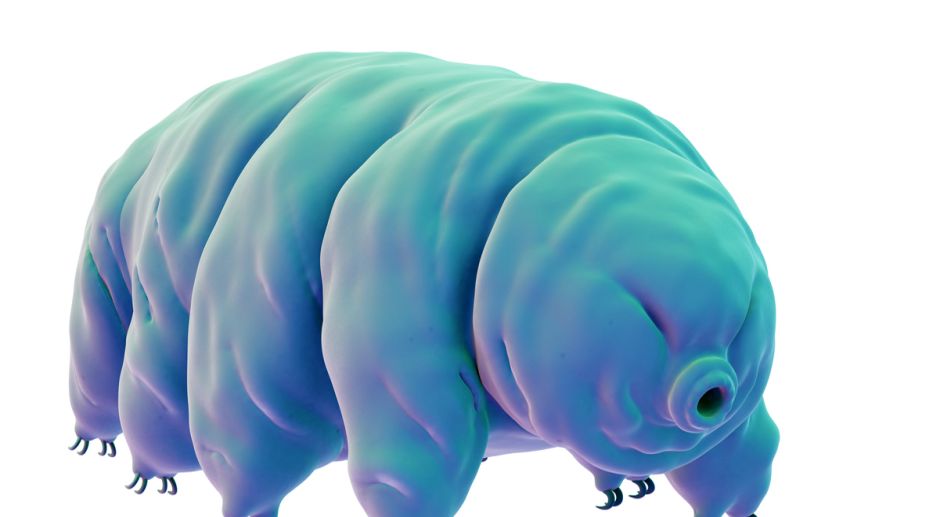Crisis Escalates
As Earth continues to spiral into a climate crisis, the recent revelation of March 2024 marking the 10th consecutive month of record-breaking heat should serve as an unignorable wake-up call.

Representational Image of Tardigrade (Photo: Getty images)
Scientists have identified an eight-legged micro-animal — Tardigrade — touted as the world's most indestructible species, one that can survive until the Sun dies.
The study showed that Tardigrades — also known as the water bear — are tiny creatures that can grow to a maximum size of 0.5mm, best seen under a microscope, and could be around for at least 10 billion years — far longer than the human race.
The water-dwelling micro animal is the toughest and most resilient form of life on earth and can live for up to 60 years by surviving the risk of extinction from all astrophysical catastrophes — a large asteroid impact, exploding stars in the form of supernovae or gamma ray bursts, since they will never be strong enough to boil off the world's oceans.
Advertisement
Tardigrades can survive for up to 30 years without food or water. They can endure temperature extremes of up to 150 degrees Celsius, the deep sea and even the frozen vacuum of space, the researchers said, in the paper detailed in the journal Scientific Reports.
"We found that although nearby supernovae or large asteroid impacts would be catastrophic for people, tardigrades could be unaffected. Therefore it seems that life, once it gets going, is hard to wipe out entirely," said David Sloan, post-doctoral research associate at the Oxford University.
"Huge numbers of species, or even entire genera may become extinct, but life as a whole will go on," Sloan added.
In highlighting the resilience of life in general, the research broadens the scope of life beyond Earth, within and outside this solar system.
"Tardigrades are as close to indestructible as it gets on Earth, but it is possible that there are other resilient species examples elsewhere in the universe," said Rafael Alves Batista, post-doctoral research associate at the varsity.
"In this context there is a real case for looking for life on Mars and in other areas of the solar system in general," he added.
Advertisement